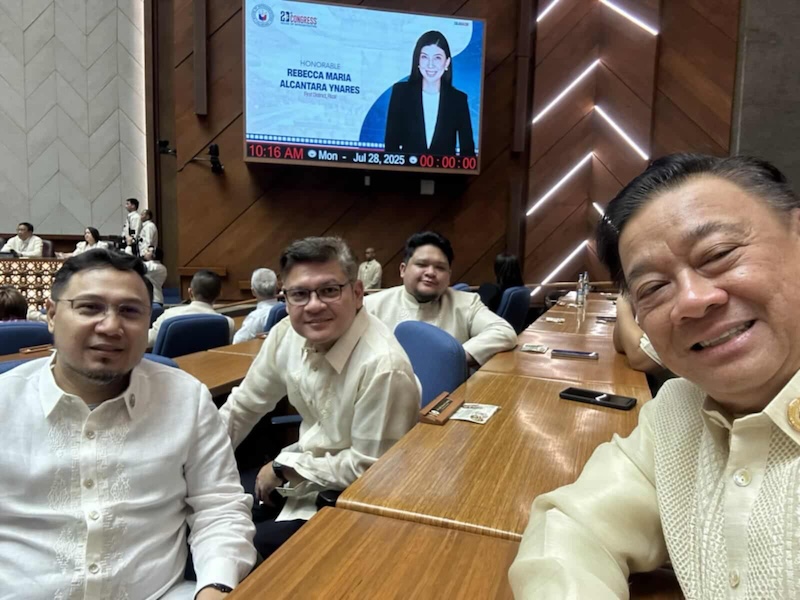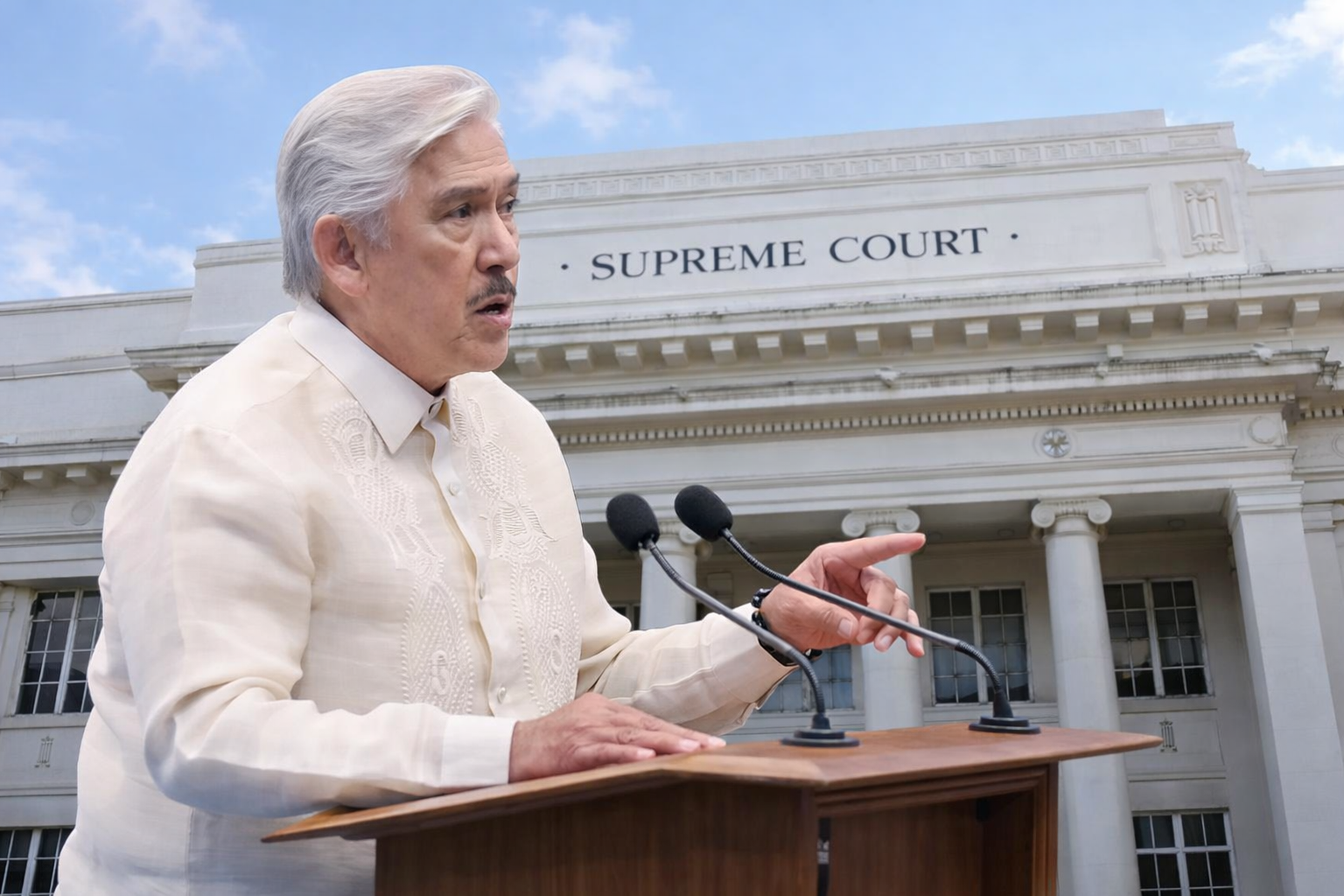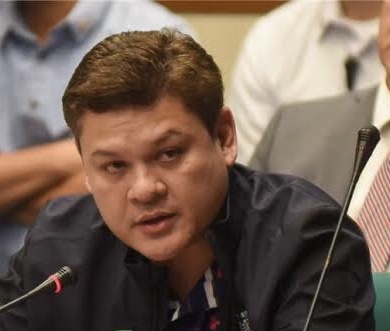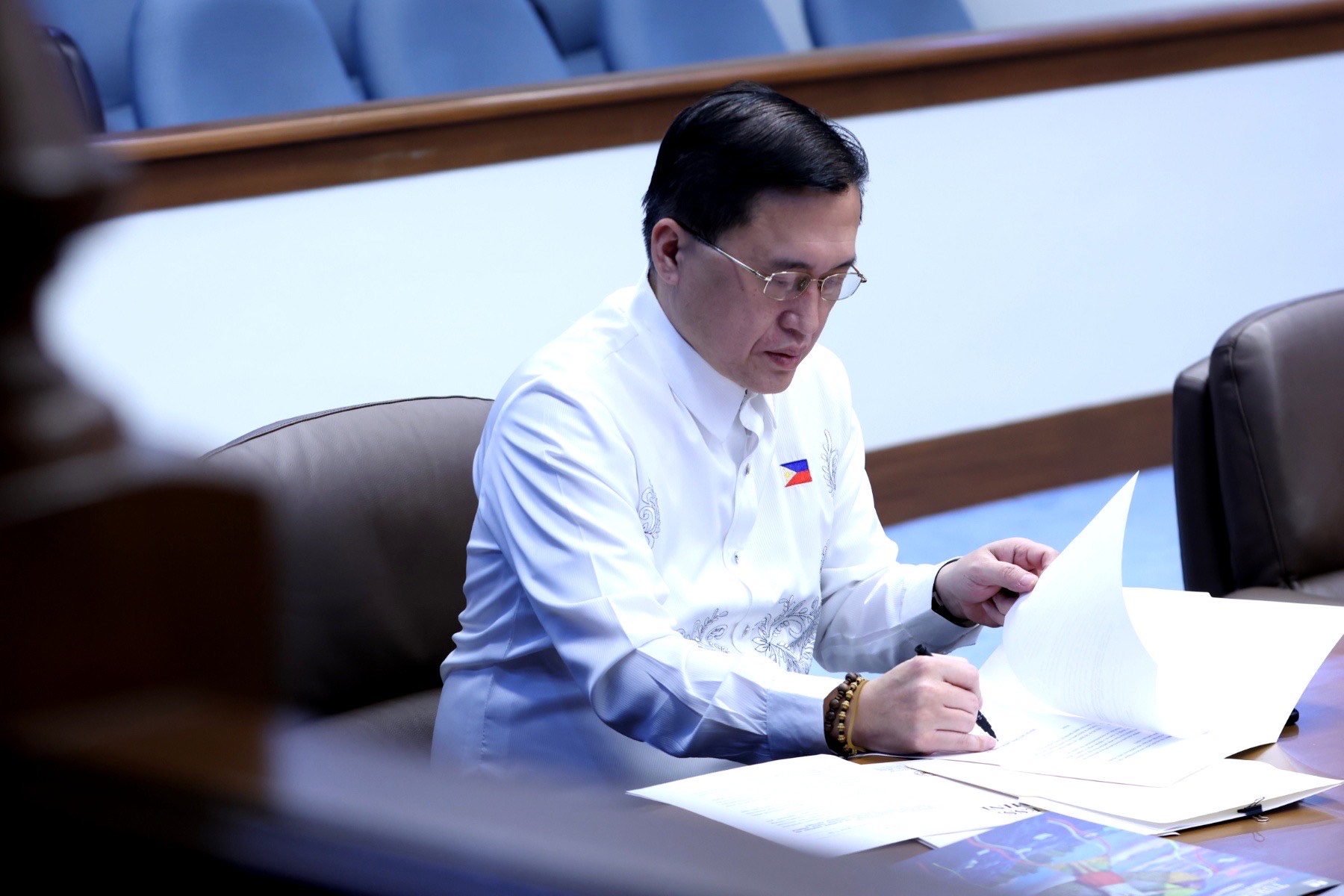Photo Courtesy: Rep. Isidro Ungab.
DAVAO CITY – In a rare display of political dissent, members of the so-called “Davao Bloc” abstained from participating in the vote for Speaker of the House on Tuesday, July 30, opting instead to walk out of the session in protest of what they called a profoundly flawed and politicized leadership race.
Leading the group was Davao City First District Rep. Paolo Duterte, joined by his son, Second District Rep. Omar Duterte, and Pwersa ng Pilipinong Pandaragat Party-list Rep. Harold Duterte. Though present during the roll call, Third District Rep. Isidro Ungab abstained from casting a vote.
The Davao bloc’s coordinated exit from the plenary floor during the opening session of the 20th Congress at Constitution Hills in Quezon City marks a notable break from the traditional alignment with either the majority or minority coalitions.
“I did not vote for Speaker and I did not join the so-called Minority because I refuse to take part in a political circus that has long forgotten who it is supposed to serve — the Filipino people,” Rep. Paolo said in a strongly worded statement.
“I represent the people of Davao City, not the political puppeteers nor the self-serving actors parading as public servants in Congress,” the lawmaker added, criticizing the leadership race as a “game of thrones” driven by ambition and personal agendas, rather than public service.
Rep. Paolo said what the people are seeing now is not governance — it is a game of thrones being played at the expense of the people. He added that today’s House looks less like a chamber of the people and more like a hollow theater where the powerful write the script.
“Members of the House who choose not to affiliate with either the majority or minority can rightfully be considered independent members,” said Rep. Ungab, now on his third consecutive term, citing legislative precedents in other democracies.
Rep. Ungab emphasized that remaining unaffiliated allows lawmakers to act in the best interests of their constituents without the pressure of partisan expectations.
Though their absence from the vote did not alter the outcome of the speakership election, the Davao lawmakers’ move drew attention to growing dissatisfaction with internal congressional politics.
Supporters believed that the Davao bloc’s decision to stand apart from dominant political factions signals a shift in tone within the House of Representatives — and possibly, a push for a more independent and accountable legislative body.(By Ivy Tejano)





